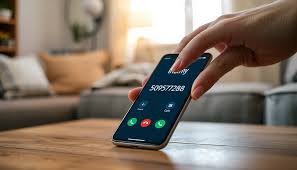Investigating Mysterious Phone Numbers: The Case of 339-210-9005

In today’s digital age, receiving calls from unknown numbers has become a common occurrence. Whether it’s a telemarketer, a wrong dial, or something more sinister like a scam, these unsolicited communications can range from annoying to downright dangerous. As technology evolves, so do the methods used by individuals and organizations to reach out via phone. In this blog post, we’ll dive deep into the world of phone number investigations, using the specific example of 339-210-9005 to illustrate how you can uncover the story behind a mysterious caller. Drawing from tech insights and practical advice, we’ll explore tools, techniques, and tips to stay safe and informed. This exploration not only highlights the importance of digital literacy but also ties into broader themes of privacy, security, and online behavior in our interconnected world.
Understanding Area Codes and Phone Number Origins
Before we zoom in on 339-210-9005, it’s essential to understand the basics of phone numbers in the United States. The North American Numbering Plan (NANP) divides numbers into area codes, which often indicate geographic regions. The area code 339, for instance, is primarily associated with eastern Massachusetts, including parts of Boston and surrounding suburbs like Norwood, Randolph, and Weymouth. This overlay code was introduced in 2001 to supplement the existing 781 area code due to increasing demand for phone lines.
Phone numbers like 339-210-9005 could belong to individuals, businesses, or even service providers. However, in an era where VoIP (Voice over Internet Protocol) technology allows anyone to acquire numbers from virtually any area code, the geographic clue isn’t always reliable. Scammers often exploit this by spoofing numbers to appear local, tricking recipients into answering. According to reports from consumer protection agencies, spoofing contributes to billions in losses annually from phone-based fraud.
To investigate a number’s origin, start with free online tools. Websites like Whitepages or AnyWho can provide basic information, such as the carrier (e.g., Verizon or AT&T) and whether it’s a landline or mobile. For more detailed insights, reverse phone lookup services like Intelius or BeenVerified charge a fee but offer comprehensive reports, including owner names, addresses, and associated social media profiles.
The Specific Case of 339-210-9005
Now, let’s turn our attention to 339-210-9005. A quick search across various phone lookup platforms and forums reveals that this number is frequently listed in online directories related to personal services in the Boston area. Specifically, it appears in advertisements on platforms like SkipTheGames and Hot.com, where it’s associated with adult entertainment services. The listings describe offerings from an individual using aliases like “Allysa Hepburn” or “Ally Sin,” emphasizing discreet, professional encounters in locations such as Peabody or Danvers.
These ads often include details about availability, preferences (e.g., 420-friendly, meaning cannabis-tolerant), and strict boundaries, such as no partying beyond certain limits. Reviews and profiles on sites like EroticMonkey and CallEscort further corroborate this, with user-submitted feedback on experiences, rates, and reliability. While these appear to be legitimate service listings, they highlight how phone numbers can be tied to niche industries that operate in legal gray areas, depending on local laws.
Is 339-210-9005 a scam? From available data, it doesn’t directly flag as fraudulent in major scam databases like the BBB Scam Tracker or FTC reports. However, the adult services sector is rife with potential risks, including bait-and-switch tactics where callers are lured into paying for non-existent services or exposed to identity theft. For example, similar numbers have been reported in forums like Reddit for impersonation scams, where callers pretend to be from official entities like the Department of Homeland Security to extract personal information.
In one instance, users on scam-focused subreddits discussed receiving calls from Massachusetts numbers claiming urgent government action, only to realize it was a ploy for financial details. While 339-210-9005 isn’t explicitly linked to such schemes, its presence in public ads makes it vulnerable to spoofing by bad actors. This underscores a key point: even benign numbers can be mimicked, leading to confusion and potential harm.
Common Phone Scams and How They Relate
To put 339-210-9005 in context, let’s examine prevalent phone scams. The “one-ring” scam, where a number calls and hangs up after one ring, encourages callbacks to premium international lines, racking up charges. Area codes like 473 (Grenada) or 809 (Dominican Republic) are notorious for this, but domestic codes like 339 can be used similarly if spoofed.
Another tactic is the “hello” text scam, where random messages like “Hello, how are you?” bait recipients into responding, leading to further engagement and potential phishing. Scammers often use lists of numbers from data breaches to target victims. In 2023, the FCC reported over 60 million scam reports, with phone scams topping the list.
Impersonation scams are particularly insidious. Callers might pose as law enforcement, banks, or tech support, using local-sounding numbers to build trust. For instance, a number like 339-210-9005 could be spoofed to appear as a local business, tricking Boston residents into sharing sensitive data.
Toll-free numbers (800, 833, etc.) are also commonly abused. A T-Mobile forum highlighted 12 frequently used scam numbers, including those sending personalized texts with the victim’s details to seem legitimate. While 339-210-9005 is a standard mobile number, its public exposure in ads increases the risk of it being harvested for such purposes.
Tools and Strategies for Phone Number Verification
Empowering yourself against unknown callers starts with the right tools. RoboKiller and similar apps use crowd-sourced data to identify spam in real-time. Enter 339-210-9005 into their lookup, and you’ll get spam scores, user reports, and block recommendations.
For deeper dives, sites like 800notes.com or WhoCallsMe allow users to post experiences. A search for 339-210-9005 might reveal if others have received unwanted calls from it. Additionally, the FTC’s Do Not Call Registry can help reduce telemarketing, though it doesn’t stop all scams.
AI-powered call screening, available on Android and iOS, transcribes calls live, letting you decide whether to answer. Apps like Truecaller go further by displaying caller IDs based on community input.
If you suspect fraud, report it. The FTC’s ReportFraud.ftc.gov portal collects data to track patterns, while local authorities like the Massachusetts Attorney General’s office handle regional complaints.
Privacy Implications and Best Practices
The case of 339-210-9005 raises broader privacy concerns. Publicly listed numbers, especially in service ads, can lead to doxxing or harassment. In the adult industry, this is a common issue, where providers use partial numbers (e.g., 339-210-XXXX) to maintain anonymity.
To protect yourself:
- Use secondary numbers from apps like Google Voice for online transactions.
- Enable two-factor authentication but prefer app-based over SMS to avoid SIM-swapping attacks.
- Regularly check your credit reports for signs of identity theft.
In tech terms, consider how AI and machine learning are revolutionizing scam detection. Tools like those from xAI or similar platforms analyze call patterns to predict threats, much like how bespoke software solves business challenges by customizing solutions.
Broader Tech and Lifestyle Connections
This investigation ties into larger tech trends. Just as AI generates music for films or virtual staging enhances real estate, it can also power scam prevention. For home improvement enthusiasts, think of phone security as fortifying your digital “home” against intruders, similar to choosing reliable plumbers for physical leaks.
In health contexts, scams targeting seniors often mimic medical alerts, emphasizing the need for regulatory compliance in biomedical tech to protect vulnerable groups.
Lifestyle-wise, maintaining digital hygiene—blocking suspicious numbers and educating family—fosters peace of mind, akin to incorporating sustainable elements like jute rugs into your decor for a balanced living space.
Conclusion: Stay Vigilant and Informed
The phone number 339-210-9005 serves as a real-world example of how a seemingly ordinary digit string can open doors to various interpretations—from legitimate services to potential risks. By using lookup tools, understanding scams, and adopting best practices, you can navigate these calls confidently. Remember, if it feels off, hang up and verify independently. In our fast-paced tech world, knowledge is your best defense.



















